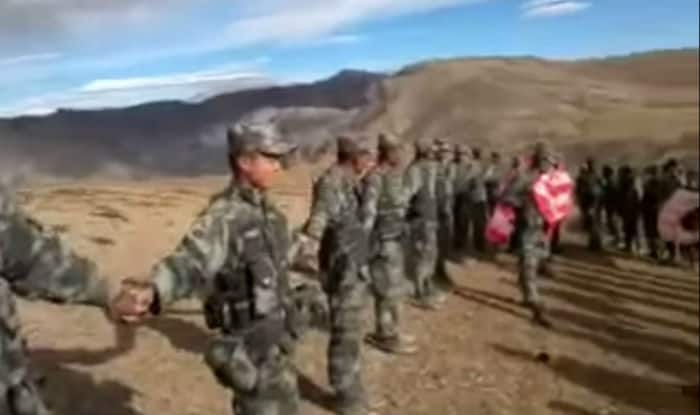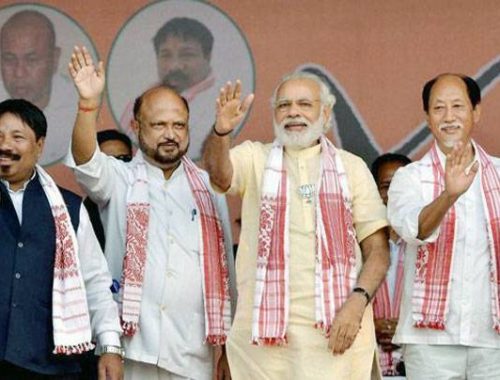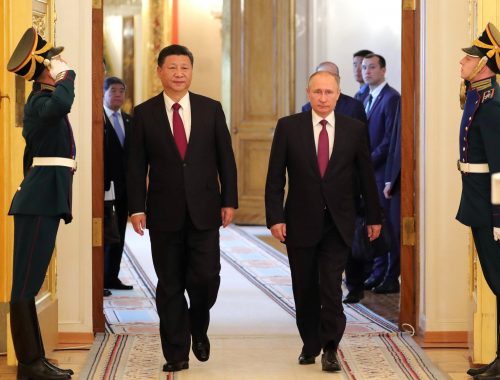By Ahmed Ali Fayyaz:
Notwithstanding violent skirmishes and killing of 20 Indian soldiers, including the Commanding Officer of a battalion, close to the Line of Actual Control (LAC) in Ladakh’s Galwan Valley, over 10,000 labourers from Jharkhand are working hard on the communication infrastructure projects of Border Roads Organisation (BRO).
People’s Liberation Army (PLA) of China has put up stiff opposition to India laying a strategically vital road in the Finger area around the Pangong Tso Lake as also to the construction of another road connecting the Darbuk-Shayok-Daulat Beg Oldie road in Galwan Valley.
“The Chinese have been working on multi-pronged strategies to stall work on some of our important roads and bridges but we are committed to go ahead and meet our deadlines. We are unfazed by the brutal killing of our soldiers,” said an officer at headquarters 14 Corps in Leh.
India has already decided not to stall any border infrastructure project in eastern Ladakh under the Chinese pressure.
In prompt response to a communication from the Ministry of Defence, the Union Ministry of Home Affairs had written to the Railways on 22 May 2020 to arrange for 11 special trains to ferry 11,800 workers from Jharkhand to Union Territories of Jammu and Kashmir, and Ladakh, as also to the states of Himachal Pradesh and Uttarakhand, for road construction activity along the country’s borders.
Also Read: Tough Situation, Talking to India & China: Prez Trump on Galwan
6,000 Workers Arrived From Jharkhand in Special Trains: Officials
Around 8,000 of the 11,815 workers that the BRO had requested for recruitment were needed for Project Vijayak in Ladakh. Others were supposedly for Project Shivalik in Uttarakhand, Project Deepak in Himachal Pradesh and Project Beacon in Jammu and Kashmir.
Abdul Rashid War, labour commissioner in the Union Territory of Jammu and Kashmir, maintained that he had no precise knowledge about transportation of the labourers coming in from Jharkhand and other states as the system of registration for all incoming and outgoing migrant workers had been put in place only three days back.
According to him, 48,681 stranded migrant labourers had returned to their home states since the Government of India permitted their inter-state transit after enforcement of the coronavirus lockdown in March.
Of them, more than 46,000 returned from Jammu and only 2,001 from Kashmir. In all, 33 shramik trains have operated between Udhampur-Jammu and New Delhi besides other states.
“In all, 10,760 workers had expressed their desire to return from Kashmir to their home states. But, subsequently, over 8,000 of them withdrew their submissions,” Mr War told The Quint, suggesting most of the outside workers had stayed back in the Valley as well as in the Union Territory of Ladakh, notwithstanding the coronavirus crisis and turbulence on the LAC.
Officials at Udhampur Railway Station in Jammu said that more than 6,000 workers had arrived from Jharkhand alone on about a dozen special trains and proceeded by bus straightaway to Ladakh under the arrangements of BRO. “Possibly, some have travelled via the Leh-Manali road through Himachal Pradesh,” said an official.
One of the district officers in Udhampur, the ultimate destination of all the special trains, said that the last train had reached there with 1,600 passengers 10 days back. He was not sure how many of them were Ladakh-bound labourers and how many were J&K residents returning from different states.
Differences Between Jharkhand Govt and BRO
The annual process of the transportation of workers from Jharkhand to J&K, Ladakh, Himachal Pradesh and Uttarakhand in April this year had stopped for some time due to differences between the government of Jharkhand and BRO.
Jharkhand Chief Minister Hemant Soren had objected to BRO’s decades-long system of picking the workers through local mates. This, according to Soren, had resulted in exploitation of the workers by a network of middlemen as there were complaints that 25 to 30 percent of the payments were going to the “mates”.
Also Read: Explained: What Is The LAC That Led To Deadly Galwan Clashes?
Soren had emphasised that BRO should recruit the workers directly after signing a Memorandum of Understanding with his government under the Inter-State Migrant Workmen Act, 1979, which had no provision for middlemen.
The Jharkhand government had reportedly received reports that BRO used to transfer the workers’ wages to their bank accounts but the “mates,” who acted as the middlemen, used to retain ATMs of all the workers. The mates would withdraw money from the workers’ bank accounts by ATM and deduct 25-30 percent as “commission”.
It was in the thick of this controversy that the Ministry of Defence asked BRO to arrange over 8,000 workers of the Ladakh infrastructure projects “on war footing basis”.
BRO on Payment of Workers
The BRO, in turn, assured Chief Minister Soren, Chief Secretary Sukhdev Singh and Principal Secretary Labour Rajeev Arun Ekka that the organisation would sign the MOU with effect from year 2021, as it needs certain approvals.
It also acquiesced to Soren’s demand of increasing the wages for all workers by 15-20 percent from June 2020 and provide them Rs 10-15 lakh insurance cover.
BRO reportedly emphasised that some roads and bridges in Ladakh were to be constructed and completed with “urgency” in the interest of national security.
According to some reports, based on the Hardness Index of the area of work and the skill of the labourers, the payments will range from Rs 15,900-29,000 for Ladakh with effect from 10 June. It will be a marked increase from what labourers received earlier through “mates”.
In a letter, Brigadier Nitin K Sharma, DDG (TP) for Director General, Border Roads, said, “BRO is committed to safeguard the interest of the labourers who are (our) backbone. It has been the constant endeavour of BRO to ensure that the aspirations of its labourers are met and their legitimate wages are paid in time.”
The labourers would also be eligible for a host of other benefits like medical facilities, injury benefits, rations, clothing, accommodation, free conveyance, and fixing of wages via boards constituted at different projects for this purpose, he said in the letter.
Soren Accepts One-Time Waiver Request
Accepting the request for a one-time waiver, Chief Minister Soren said, “National Security is our priority and, at the same time, we have prioritised that honour, dignity and rights of our workers are guaranteed while serving the nation.”
“We are committed to the welfare of our workers and our tribal brothers have long served the nation and built its frontiers. We are ready to send our workers in the interest of national security but will not allow any compromise of their honour, welfare rights, benefits and dignity,” Soren said in May.
“National security is our priority and, at the same time, we have prioritised that the honour, dignity and rights of our workers are guaranteed, while serving the nation,” Soren said, asking BRO to take full care of the workers from next year.
Thousands of tribal workers from Jharkhand’s Santhal Pargana have been at the forefront to build the nation’s frontiers since the early 1970s. BRO has assured all safeguards for workers on key aspects such as wages, accommodation, rations, clothing and injury benefits.




